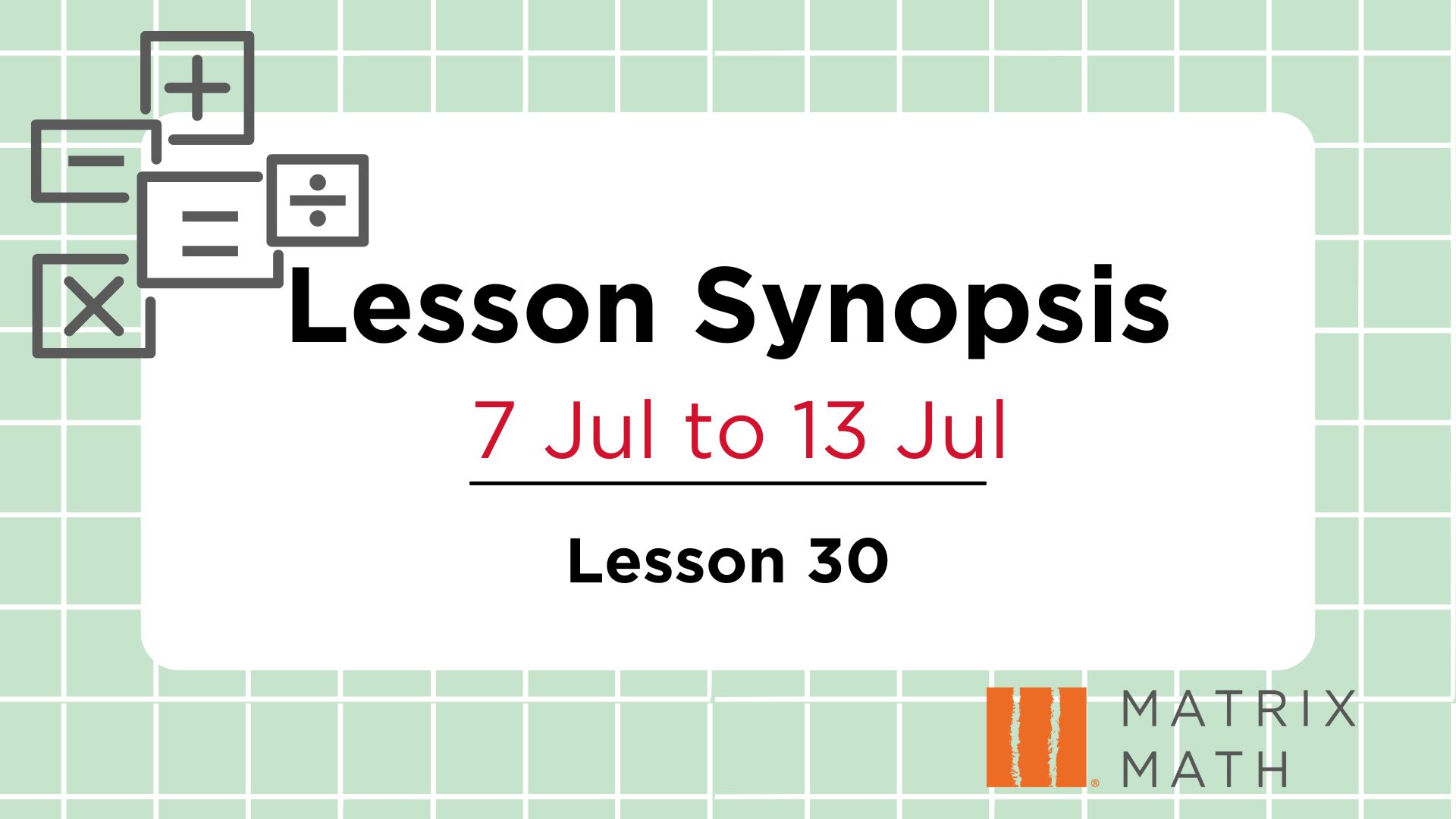
07 July 2025
At Matrix Math, we provide an engaging and detailed learning experience for your child. Matrix Math Tuition programme focuses on essential concepts that will further strengthen their mathematical foundation. The lesson synopsis gives parents a clear preview of the topics and problem-solving skills that will be covered in class. At Matrix Math, we ensure that each lesson is designed to build confidence and mastery in math, preparing students for success in both school and beyond.
This week, we are continuing our exploration of “Numbers to 100, Lesson 4”.
In this lesson, we will focus on problem sums that revolve around the concept of “Before, Change, After.” Students will delve into scenarios that require them to analyze and solve problems by considering the state before an action, the change that occurs, and the resulting state after the change.
This week, we will embark on a new topic, “Fractions.”
During this lesson, we will focus on the fundamental concepts of fractions. Students will learn:
As we move into Lesson 30, we will continue with “Measurement 3.”
In this lesson, we will delve deeper into the interval concept, focusing on problems that require students to work both forwards and backwards within the same question. Mastering this skill is essential to solving more complex problem sums, and we’ll be dedicating time to ensure students are comfortable with it.
Additionally, we’ll tackle questions that involve both quantity and units. These kinds of questions can be more challenging, often requiring students to construct slightly more complex models to understand the problem requirements.
This week in Lesson 30, we will continue with Decimals, Lesson 3.
In this lesson, we will focus on four commonly tested heuristic concepts. We will incorporate the fundamentals of decimals in solving these problem sums. The concepts we will cover are:
This week in Lesson 30, we will continue our exploration of “Percentage 2.” Building upon the foundational concepts of percentages, we will delve into additional percentages-related topics.
During this lesson, we will cover the following key concepts:
This week, we will continue with PSLE Revision Lesson 4.
This lesson will systematically review and practice essential topics, concepts, and problem-solving methods commonly tested in the PSLE. We aim to strengthen students’ understanding, problem-solving abilities, and confidence as they prepare for the upcoming examination.
Active participation and completing the assigned additional practice exercises are crucial for effective revision. These exercises are designed to align with the PSLE requirements, providing students with valuable exposure to the types of questions they may encounter and opportunities to apply their knowledge and skills effectively.